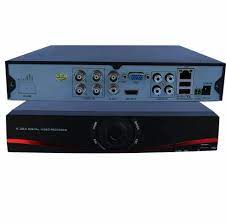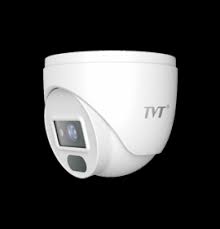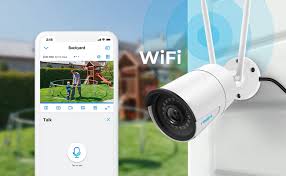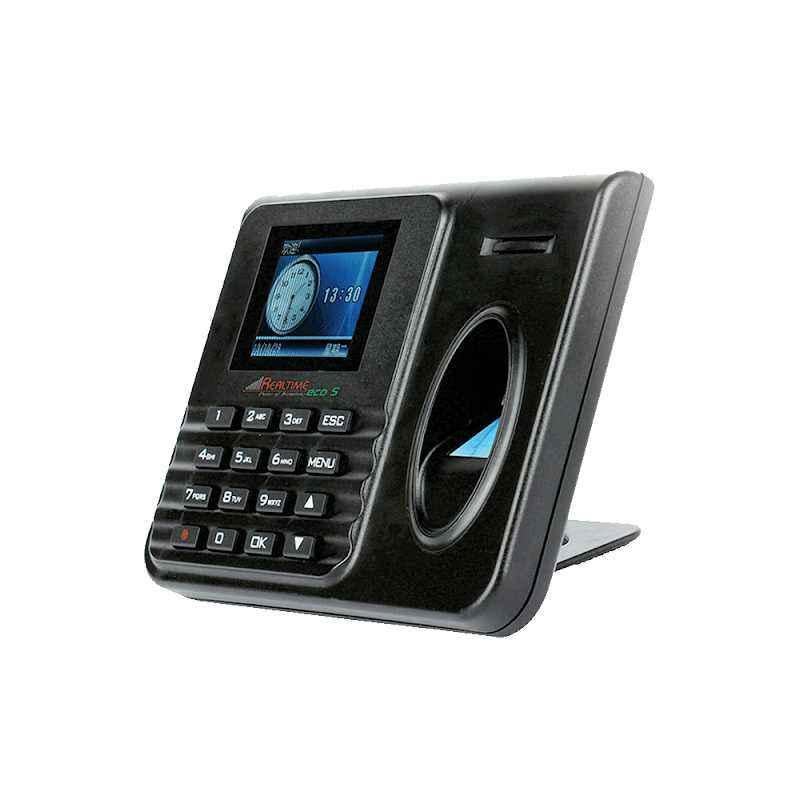CCTV Camera Recorder: Enhancing Security and Peace of Mind
In today’s fast-paced world, security has become a top priority for individuals, businesses, and organizations alike. One of the most effective tools in ensuring safety and preventing unwanted incidents is the Closed Circuit Television (CCTV) camera system. However, the effectiveness of a CCTV system heavily relies on its recorder.
A CCTV camera recorder, also known as a Digital Video Recorder (DVR) or Network Video Recorder (NVR), is an essential component of any surveillance setup. It plays a crucial role in capturing, storing, and managing video footage from the connected cameras.
One of the primary benefits of having a CCTV camera recorder is its ability to record high-quality video footage. With advancements in technology, modern recorders can capture high-resolution videos in both daylight and low-light conditions. This ensures that every detail is captured accurately, providing valuable evidence in case of any incidents or investigations.
The storage capacity of CCTV camera recorders has also significantly improved over time. They now come with larger hard drives or support external storage options such as Network Attached Storage (NAS) or cloud storage. This allows for longer retention periods and enables users to review past footage whenever needed.
Another important feature of CCTV camera recorders is their ability to support multiple channels. Whether you have a small home surveillance system or a large-scale commercial setup, these recorders can accommodate several cameras simultaneously. This flexibility allows for comprehensive coverage of your premises without compromising on quality.
Remote access is another significant advantage provided by CCTV camera recorders. Many modern systems offer mobile applications or web interfaces that enable users to view live feeds and recorded footage from anywhere using their smartphones, tablets, or computers. This feature provides convenience and peace of mind by allowing users to monitor their property remotely at any time.
Furthermore, advanced CCTV camera recorders often come with intelligent features such as motion detection and video analytics. These capabilities enable the system to automatically detect suspicious activities and trigger alerts. Such proactive measures can help prevent potential security breaches and ensure a prompt response to any unusual events.
Installing a CCTV camera recorder also acts as a deterrent against criminal activities. The visible presence of cameras, along with the knowledge that all activities are being recorded, discourages potential wrongdoers from engaging in illegal actions. This not only protects your property but also enhances the overall safety of the surrounding area.
In conclusion, a CCTV camera recorder is an indispensable component of any surveillance system. It provides high-quality video recording, ample storage capacity, remote access capabilities, and intelligent features that enhance security and peace of mind. Whether it’s for residential, commercial, or public spaces, investing in a reliable CCTV camera recorder is a wise decision that contributes to a safer and more secure environment for everyone.
7 Essential Tips for Choosing and Using a CCTV Camera Recorder
- Choose the right CCTV camera recorder for your needs – consider the size and type of area you are looking to cover, as well as the quality of footage you need.
- Install your CCTV camera recorder in a secure location – it should be out of reach and in an area with good lighting.
- Use high resolution cameras – this will ensure that you get clear footage even when zooming in on a particular image.
- Make sure your CCTV camera recorder is connected to a reliable power source – use surge protectors to guard against power surges which can damage equipment.
- Keep up with maintenance – regular maintenance will help keep your system running smoothly and extend its life span significantly.
- Securely store data – make sure all footage is stored securely so that it cannot be accessed by anyone else without permission or authorization from yourself or an authorized person/entity.
- Ensure that all staff members are aware of the CCTV system and its purpose – make sure all staff members know how to operate the system correctly, where they can access footage if needed, and what their responsibilities are regarding privacy laws and regulations relating to CCTV systems
Choose the right CCTV camera recorder for your needs – consider the size and type of area you are looking to cover, as well as the quality of footage you need.
Choosing the Right CCTV Camera Recorder: Ensuring Optimal Security Coverage
When it comes to setting up a CCTV camera system, selecting the right camera recorder is crucial to ensure optimal security coverage. Considering factors such as the size and type of area you want to monitor, as well as the quality of footage you require, will help you make an informed decision.
Firstly, it’s important to assess the size of the area you intend to cover. Are you looking to secure a small residential property, a medium-sized office space, or a large commercial establishment? The size of the area will determine the number of cameras and channels required. Ensure that your chosen CCTV camera recorder can accommodate all the cameras needed for comprehensive surveillance.
Next, consider the type of area you are looking to cover. Different environments have varying surveillance requirements. For example, indoor areas may require different camera features compared to outdoor spaces. Outdoor cameras should be weatherproof and equipped with night vision capabilities for round-the-clock monitoring. On the other hand, indoor cameras may focus on capturing finer details or offer discreet designs.
Moreover, think about the quality of footage you need. This depends on your specific security objectives and potential risks associated with your premises. If you require clear identification of individuals or detailed monitoring of activities, opting for high-resolution cameras and a recorder that supports high-definition recording is essential. However, if your needs are more general or budget-oriented, standard resolution options may suffice.
Considering storage capacity is equally important when choosing a CCTV camera recorder. Determine how long you want to retain recorded footage and whether you prefer on-site storage or cloud-based solutions. Larger storage capacities allow for longer retention periods without overwriting crucial data.
Additionally, don’t forget about scalability and future expansion possibilities. Your security needs may evolve over time as your business grows or requirements change. Selecting a CCTV camera recorder that offers flexibility in terms of adding more cameras or upgrading storage capacity ensures seamless integration and avoids the need for a complete system overhaul.
Lastly, consult with professionals or reputable suppliers who can provide expert advice based on your specific requirements. They can guide you in choosing the right CCTV camera recorder that aligns with your security goals and budget.
By carefully considering the size and type of area you need to cover, as well as the quality of footage required, you can make an informed decision when selecting a CCTV camera recorder. This ensures that your surveillance system effectively meets your security needs, providing you with peace of mind and enhanced protection for your property.
Install your CCTV camera recorder in a secure location – it should be out of reach and in an area with good lighting.
When setting up your CCTV camera system, it’s crucial to pay attention to the placement of your camera recorder. While the cameras themselves capture the footage, the recorder is responsible for storing and managing that valuable information. Here’s why it’s important to install your CCTV camera recorder in a secure location.
First and foremost, placing the recorder in a secure location ensures its protection from unauthorized access or tampering. By keeping it out of reach, you minimize the risk of someone interfering with the system or attempting to steal or damage the recorded footage. Consider installing it in a locked cabinet or a dedicated room with restricted access.
Additionally, choosing an area with good lighting is essential for optimal surveillance. Adequate lighting conditions help improve image quality and make it easier to identify individuals and activities captured on camera. Avoid placing the recorder in dimly lit areas as this may result in blurry or unclear footage, reducing its effectiveness as evidence if required.
Furthermore, installing the CCTV camera recorder in a secure location also prevents accidental damage. Placing it away from high-traffic areas or potential hazards reduces the likelihood of physical damage caused by bumps, spills, or other accidents.
Remember that accessibility is also important when selecting a spot for your CCTV camera recorder. Ensure that it’s easily accessible for maintenance purposes such as reviewing or backing up recorded footage. However, strike a balance between accessibility and security to prevent unauthorized individuals from accessing the system.
Lastly, consider protecting your CCTV camera recorder from environmental factors such as extreme temperatures or moisture. Choose a location that is climate-controlled and free from excessive humidity to ensure optimal functioning and longevity of your equipment.
By following these guidelines and installing your CCTV camera recorder in a secure location with good lighting, you can maximize its effectiveness and ensure that your surveillance system operates at its best. Protecting this vital component helps safeguard your recorded footage, maintain image quality, and prolong the overall lifespan of your CCTV system.
Use high resolution cameras – this will ensure that you get clear footage even when zooming in on a particular image.
Use High-Resolution Cameras for Crystal Clear Footage
When it comes to choosing the right CCTV camera recorder, one crucial tip that should not be overlooked is the selection of high-resolution cameras. The resolution of a camera determines the level of detail captured in the video footage, making it an essential factor in ensuring clear and crisp images.
By opting for high-resolution cameras, you can guarantee that you will get clear footage even when zooming in on a particular image. This becomes particularly important in situations where identifying faces, license plates, or other critical details is necessary.
The resolution of a camera is measured in pixels, with higher numbers indicating a greater level of detail. Traditional analog cameras typically offer resolutions ranging from 420TVL (TV lines) to 700TVL. However, with advancements in technology, digital cameras now provide even higher resolutions such as 1080p Full HD or 4K Ultra HD.
High-resolution cameras offer several advantages. First and foremost, they capture more information within each frame, resulting in sharper images and finer details. This means that even when you need to zoom in on specific areas or objects during playback or investigation, the image remains clear and recognizable.
Moreover, high-resolution cameras allow for better coverage of larger areas without compromising on quality. With their ability to capture more pixels per frame, they can cover wider angles while still maintaining clarity and reducing blind spots.
In addition to capturing clear footage during daylight hours, high-resolution cameras are also designed to perform well under low-light conditions. Many models come equipped with advanced features like Wide Dynamic Range (WDR) and Infrared (IR) capabilities that enhance visibility during nighttime or dimly lit environments.
It’s important to note that while high-resolution cameras provide superior image quality, they may require more storage space due to larger file sizes. Ensure that your CCTV camera recorder has sufficient storage capacity to accommodate the increased data generated by these cameras.
Investing in high-resolution cameras for your CCTV camera recorder is a wise choice that greatly enhances the effectiveness of your surveillance system. Whether it’s for residential, commercial, or public spaces, clear and detailed footage is essential for accurate identification, investigation, and overall security.
So, remember to prioritize high-resolution cameras when selecting your CCTV camera recorder. By doing so, you can ensure that every frame captured by your surveillance system is of the highest quality, providing you with the level of detail needed to effectively monitor and protect your property.
Make sure your CCTV camera recorder is connected to a reliable power source – use surge protectors to guard against power surges which can damage equipment.
Protecting Your CCTV Camera Recorder: Safeguarding Against Power Surges
When it comes to securing your property and ensuring the safety of your loved ones or business, a CCTV camera system is an invaluable asset. However, it’s crucial to remember that the effectiveness of your surveillance setup depends on various factors, including the stability of its power source. Power surges can pose a significant risk to your CCTV camera recorder and other equipment, potentially causing damage or even rendering them useless. To safeguard against such risks, it is essential to connect your recorder to a reliable power source and consider using surge protectors.
A power surge is a sudden increase in electrical voltage that exceeds the standard flow of electricity. These surges can occur due to various reasons, such as lightning strikes, utility company issues, or faulty wiring within your premises. Unfortunately, these unpredictable events can wreak havoc on sensitive electronic devices like CCTV camera recorders.
By connecting your CCTV camera recorder to a reliable power source, you ensure a consistent and stable supply of electricity. This reduces the chances of sudden voltage fluctuations that can harm your equipment. Additionally, it’s advisable to use surge protectors as an extra layer of defense against power surges.
Surge protectors are devices designed to absorb excess electrical energy during a power surge. They act as barriers between your valuable equipment and harmful voltage spikes by diverting excess electricity away from them. By using surge protectors in conjunction with your CCTV camera recorder, you add an extra layer of protection against potential damage caused by power surges.
When selecting a surge protector for your CCTV camera recorder, make sure it has sufficient capacity to handle the electrical load required by all connected devices. Consider factors such as the number of outlets needed and features like built-in circuit breakers for added safety.
Furthermore, it’s important to periodically inspect and replace surge protectors if they show signs of wear or have been subjected to significant power surges in the past. Over time, surge protectors can become less effective, so it’s essential to stay vigilant and ensure they are in good working condition.
By taking these precautions, you can minimize the risk of power surges damaging your CCTV camera recorder and other vital equipment. Protecting your investment not only ensures the continued functionality of your surveillance system but also provides you with peace of mind knowing that your property remains under reliable and secure surveillance.
Remember, investing in a reliable power source and utilizing surge protectors are small yet significant steps towards maintaining the longevity and effectiveness of your CCTV camera recorder. By safeguarding against power surges, you can enjoy uninterrupted surveillance coverage, knowing that your equipment is well-protected against unexpected electrical fluctuations.
Keep up with maintenance – regular maintenance will help keep your system running smoothly and extend its life span significantly.
Keep Your CCTV Camera Recorder Running Smoothly with Regular Maintenance
Investing in a CCTV camera recorder is a smart decision to enhance the security of your property. However, it’s important to remember that like any other electronic device, regular maintenance is essential to ensure optimal performance and longevity.
Regular maintenance of your CCTV camera recorder can help identify and address any potential issues before they escalate into major problems. Here are a few tips to keep your system running smoothly:
- Clean the Cameras: Dust, dirt, and debris can accumulate on the camera lenses over time, affecting the quality of video footage. Regularly clean the cameras using a soft cloth or lens cleaning solution to maintain clear and sharp images.
- Check Connections: Ensure that all cables and connectors are securely plugged in. Loose connections can lead to intermittent signals or loss of video feed. Regularly inspect the cables for any signs of wear or damage, replacing them if necessary.
- Update Firmware: Manufacturers often release firmware updates for their CCTV camera recorders to improve performance and address security vulnerabilities. Check for firmware updates regularly and install them as recommended by the manufacturer.
- Test Recording and Playback: Periodically test the recording and playback functions of your CCTV camera recorder to ensure they are functioning properly. Verify that all cameras are capturing footage as intended and that you can access recorded videos without any issues.
- Monitor Storage Space: Keep an eye on the available storage space on your recorder’s hard drive or external storage devices. If it starts running low, consider deleting old footage or expanding storage capacity to avoid overwriting important recordings.
- Battery Backup: If your CCTV camera recorder has a built-in battery backup system, test it periodically to ensure it is functioning correctly. This will ensure uninterrupted surveillance even during power outages.
- Professional Maintenance: Consider scheduling regular professional maintenance visits from qualified technicians who specialize in CCTV systems. They can conduct thorough inspections, clean internal components, and perform any necessary repairs or upgrades.
Remember, regular maintenance not only helps keep your CCTV camera recorder running smoothly but also extends its lifespan significantly. By taking proactive measures to maintain your system, you can ensure that it continues to provide reliable surveillance and peace of mind for years to come.
Securely store data – make sure all footage is stored securely so that it cannot be accessed by anyone else without permission or authorization from yourself or an authorized person/entity.
Securely Store Data: Safeguarding Your CCTV Camera Recorder Footage
When it comes to the security of your premises, having a CCTV camera recorder is an essential tool. However, it’s crucial to remember that the footage captured by your CCTV system holds sensitive information that needs to be protected. To ensure the utmost privacy and integrity of your recorded data, securely storing it should be a top priority.
First and foremost, it’s essential to choose a reliable and reputable CCTV camera recorder that offers robust security features. Look for recorders that provide encryption capabilities, which protect your footage from unauthorized access during transmission and storage. This ensures that even if someone intercepts or gains access to the data, they won’t be able to decipher its contents.
In addition to encryption, consider implementing strong access controls for your CCTV camera recorder system. This means setting up unique usernames and passwords for authorized personnel who can access and manage the recorded footage. Regularly update these credentials and avoid using easily guessable passwords to prevent unauthorized individuals from gaining entry.
Physical security measures are equally important when it comes to securely storing your CCTV camera recorder data. Ensure that the recorder itself is kept in a locked and secure location, preferably in a dedicated server room or secure cabinet. Limit physical access only to authorized personnel who have a legitimate need to handle or manage the system.
Furthermore, consider implementing backup solutions for your recorded footage. Regularly create backups of the data and store them in separate locations or on secure cloud-based platforms. This practice protects against potential loss or damage due to hardware failures, theft, or natural disasters.
Regular maintenance is crucial for maintaining the security of your CCTV camera recorder system. Keep all software and firmware up-to-date with the latest patches and security updates provided by the manufacturer. These updates often address vulnerabilities that could potentially be exploited by malicious actors seeking unauthorized access.
Lastly, establish clear policies regarding data retention periods for your recorded footage. Determine how long you need to retain the data based on legal requirements, industry standards, or your specific needs. Once the retention period has expired, securely delete or dispose of the footage to ensure that it cannot be accessed or misused.
By following these tips and best practices, you can ensure that your CCTV camera recorder data remains secure and protected from unauthorized access. Safeguarding this sensitive information not only protects your privacy but also maintains the integrity of any potential evidence in case of investigations or incidents. Remember, securely storing your CCTV camera recorder footage is a critical step towards maintaining a robust and reliable security system for your premises.
Ensure that all staff members are aware of the CCTV system and its purpose – make sure all staff members know how to operate the system correctly, where they can access footage if needed, and what their responsibilities are regarding privacy laws and regulations relating to CCTV systems
Ensuring Staff Awareness: A Crucial Aspect of CCTV Camera Recorder Usage
When it comes to operating a CCTV camera system, it’s not just about having the right equipment and technology in place. Equally important is ensuring that all staff members are well-informed and aware of the system’s purpose, functionalities, and legal obligations.
To maximize the effectiveness of your CCTV camera recorder, it is essential to educate and train your staff on its usage. Here are some key points to consider:
- System Operation: All staff members should be familiar with how to operate the CCTV camera recorder correctly. Provide comprehensive training sessions that cover basic functions such as starting and stopping recording, navigating through footage, and adjusting camera settings if necessary. This knowledge empowers employees to utilize the system effectively when needed.
- Accessing Footage: Make sure your staff knows where they can access recorded footage if required. Whether it’s stored locally on a DVR or accessible remotely through a network connection, provide clear instructions on how to retrieve specific recordings. This ensures that relevant footage can be easily accessed for review or investigation purposes.
- Privacy Laws and Regulations: It is crucial for all staff members involved in monitoring or accessing CCTV footage to be aware of privacy laws and regulations pertaining to CCTV systems. Educate them about the importance of respecting individuals’ privacy rights and maintaining confidentiality when handling sensitive information captured by the cameras.
- Responsibilities: Clearly define each staff member’s responsibilities regarding the CCTV system. Designate specific individuals who will oversee its maintenance, monitor live feeds if necessary, or handle any technical issues that may arise. By assigning roles and responsibilities, you ensure that everyone understands their obligations towards maintaining the integrity and effectiveness of the system.
Promoting staff awareness regarding your CCTV camera recorder has several benefits:
a) Enhanced Efficiency: When employees are knowledgeable about operating the system, they can quickly respond during emergencies or incidents, minimizing potential risks.
b) Increased Accountability: Staff members who are aware of the CCTV system are more likely to adhere to company policies and guidelines, as they understand that their actions may be recorded.
c) Compliance with Regulations: By educating staff about privacy laws and regulations, you mitigate the risk of legal implications resulting from mishandling or unauthorized use of CCTV footage.
d) Improved Security Culture: Staff awareness fosters a culture of security within the organization. Employees become more vigilant and proactive in identifying potential security threats, leading to a safer working environment for everyone.
Remember, a CCTV camera recorder is only as effective as the people using it. By ensuring that all staff members are well-informed about the system’s purpose, operation, access procedures, and legal obligations, you create an environment where the CCTV system can fulfill its intended role in enhancing security and maintaining peace of mind.




